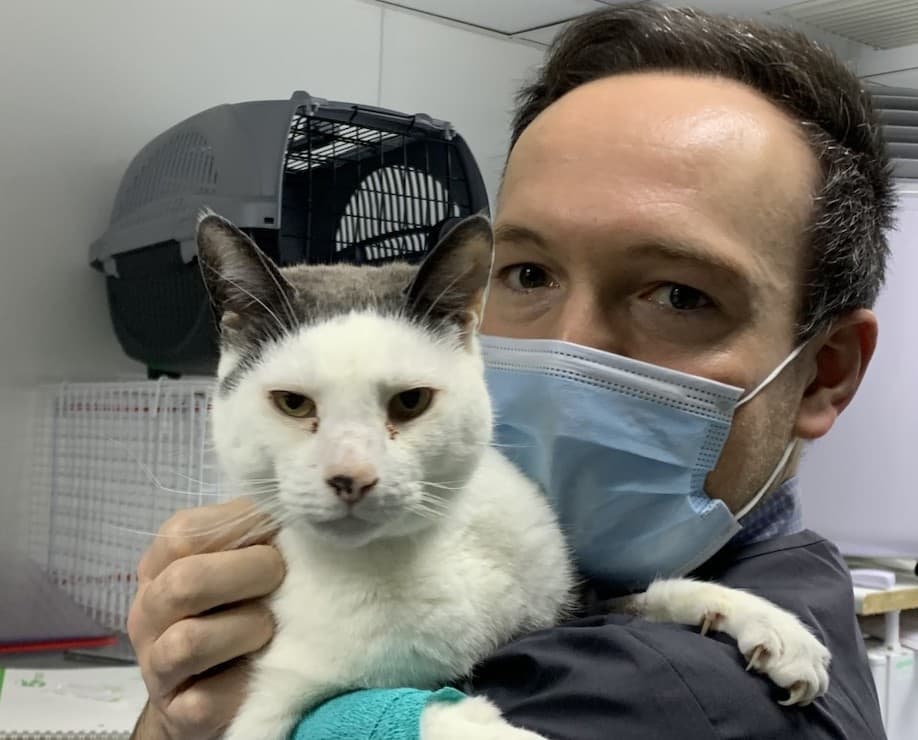In 2019, Harvey presented to North Downs Specialist Referrals (another veterinary practice within the Linnaeus group), with breathing difficulties. Unfortunately, he was diagnosed with a thymoma.
A thymoma is a type of tumour which can arise from the thymus. The thymus is a small structure which is part of the developing immune system and normally regresses to undetectable levels at a young age. In rare cases, a tumour can arise from the remnants of tissue and grow into a large mass. This can cause secondary problems, such as difficulty breathing or fluid to build up around the lungs. Luckily, Harvey was operated on in 2019 at NDSR, which was very successful. Many cats live for years after this surgery alone.
Unfortunately for Harvey, in 2021 a monitoring CT scan detected that his tumour had recurred. At that time, a large lump was also found in his armpit, which was diagnosed as spread of the tumour to this site. Harvey was referred to specialist James Elliott, from Southfields Medical and Radiation Oncology team, for assessment. It was clear from Harvey’s CT scan that further surgery would not be a good option, as the tumour was large, attached to his heart and had spread to an area outside the chest. There were also several other lymph nodes in the chest cavity and near the shoulders which were enlarged and abnormal in appearance on CT. Sadly, it was suspected that the tumour had also spread to these lymph nodes too.
Harvey’s owners elected to treat him with a course of radiotherapy, which is the use of an external beam of x-rays targeted to the tumour. This was delivered as 15-treatments (also called “fractions”) over a 3-week period. The reason for this “fractionation” of radiotherapy (giving multiple small treatments which add up to a large dose overall) is to be gentler on the normal surrounding tissues. Unfortunately, these tumours are surrounded by the heart, lungs, trachea, oesophagus and spinal cord. Coupled with tumour movement during breathing, treatment of such large, internal tumours is very challenging.
Harvey tolerated his daily anaesthesia for treatment very well and showed no external side effects of his treatment. He did develop a slight cough a few weeks after treatment, due to some temporary inflammation of the lungs near the tumour.
Harvey is now doing fantastically well at home, and his 3-month, post-treatment CT scan in May revealed no sign of tumour regrowth and it was no longer possible to feel the lump in his armpit.
Thymomas in cats often do respond very well to radiation therapy, like in Harvey’s case. However, it is very unusual for them to spread outside the chest and infrequent that we see them spread to multiple lymph nodes. Whilst the future is still a little uncertain for Harvey, his excellent response to treatment so quickly is very encouraging. It is fantastic to get updates from his committed owners and to hear that he is doing so well.
Southfields is one of only a few centres in the UK that can deliver radiotherapy to pets and the only centre in the UK that has two, full-time, double-boarded veterinary medical and radiation oncologists.
Click here to find out more about the Oncology service at Southfields.



